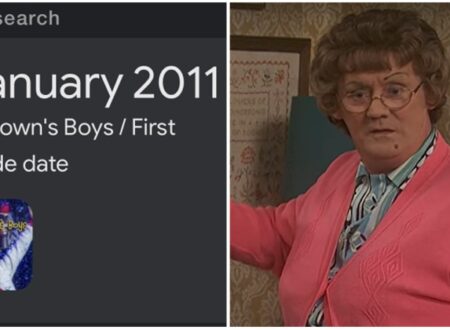How to make progress on your career goals when you’ve hit the midyear slump

Each January, we set lofty resolutions for ourselves: increasing our output, landing that promotion, and negotiating a raise. Then progress stalls, motivation dips, and those big goals become distant dreams.
Research from Headway—a book summary app designed to help people achieve their self-development goals—shows that 60% of people are embarrassed by how little progress they’ve made this year, with 44% close to writing off their 2025 resolutions.
As a productivity coach, I know how beneficial resolutions can be—but also how quickly they can sap morale and motivation when combined with the wrong mindset.
But it doesn’t have to be all or nothing. There’s no deadline, and you haven’t failed if you don’t complete your resolutions by December 31st. So if you’ve hit a midyear slump, don’t panic. These strategies can help you to reset, refocus, and rebuild momentum:
1. Reframe your setbacks
Setback carries negative connotations, but it’s just another word for experience, and experience is essential for growth.
Instead of brushing these moments aside—or beating yourself up over them—note down each time you’ve tried and failed, then reflect on what these experiences taught you, shifting your mindset from self-criticism to self-awareness. Where did it go wrong, and what would you do differently next time?
Setbacks aren’t roadblocks; they’re stepping stones—with each one providing valuable insight that will aid your next attempt, making you more resilient and better prepared. In fact, research shows that a failure rate of around 15% is optimal for self-growth.
2. Utilize the Zeigarnik effect
Many people recommend breaking your resolutions down into smaller, more achievable tasks. Yet, that constant sense of achievement can kill your productivity. You tick a small step off your to-do list and reward yourself with a break, hitting reset on your momentum.
Instead, you need to use the Zeigarnik effect to your advantage. This is a phenomenon where our brains are hardwired to focus on unfinished tasks and quickly forget about the ones we’ve completed. Instead of wrapping up your day with your to-do list at 100% completed, end at 80%. The next day, you’ll be ready to pick up where you left off. But once you finish a task, move immediately on to the next to keep the momentum going.
This approach will keep your goal front of mind, maintain a sense of urgency, and prevent that post-completion slump that too often derails our progress.
3. Cut yourself some slack
You’re not the person you were six months ago. Life shifts and priorities change, so your January goals might be unrealistic today. That’s okay.
Some 27% of people say simply surviving 2025 is commendable—and they’re right. Close to half fear a global conflict is on the horizon, one in five find themselves worrying that a loved one could face deportation, and there has been a sharp rise in the number of people struggling to make ends meet.
Tensions are high, and we’re all struggling with something, so go easy on yourself. If you need to scale back your resolutions or hit pause until 2026? There’s no shame in it.
4. Stop striving for perfection
You don’t have to navigate your goals alone—or stick rigidly to the resolutions you set in January. You simply need to stay connected to your intentions, especially when motivation starts to dip.
That might mean scheduling regular check-ins with yourself where you can remind yourself why you set certain goals in the first place, take time to note what’s working and what isn’t, and adjust accordingly to match the current pace of life.
Progress isn’t about perfection. It’s about staying in tune with what matters most to you and seeking to better yourself. By being too tough on yourself—denying yourself the space, flexibility, and self-trust to get there in the end—you’re not pushing yourself to achieve; you’re pushing yourself to quit.
5. Focus on recovery
With 61% of people having suffered a meltdown in 2025, it’s clear we’re demanding too much of ourselves, and another midyear resolution won’t help.
The problem is, we set ambitious goals on top of our already overloaded schedules, then sacrifice our sleep and downtime to pursue them. It’s no surprise we burn out when our bodies and minds are running on empty.
So instead of pushing yourself to do more, push yourself to rest more. Your midyear resolutions should be to sleep eight hours each night, stop checking your emails after hours, and use up all your vacation days.
There’s a reason athletes take rest days and CEOs swear by meditation. What’s good for the body and mind is great for productivity, so if you set resolutions that help you rest, relax, and recover, your career will undoubtedly profit.
What's Your Reaction?
 Like
0
Like
0
 Dislike
0
Dislike
0
 Love
0
Love
0
 Funny
0
Funny
0
 Angry
0
Angry
0
 Sad
0
Sad
0
 Wow
0
Wow
0





























































































